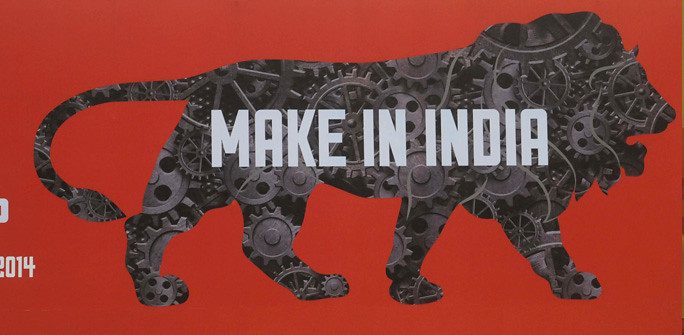
Recently, Government of India has launched what is called a “Make-in-India” campaign. It alludes to a new mindset and in the words of GoI: “Make in India program represents an attitudinal shift in how India relates to investors: not as a permit-issuing authority, but as a true business partner. Dedicated teams that will guide and assist first-time investors, from time of arrival. Focused targeting of companies across sectors.”.
Where is the focus of this new mindset? It seems to be in attracting investments in premier industry verticals like Defence, Space, Railways and Infra related. This investment model has been successfully put to use by China with Deng Xiaoping’s reforms in mid-seventies by first attracting foreign investments and exporting products thus, produced out of these investments. In other words, it seems to be more like following the success story of China in Manufacturing. With all the big talk about China’s manufacturing prowess, majority of the cutting edge innovations either in terms of technologically superior products or technologies themselves, like 3D Printing, are from advanced industrialized nations like USA and Western European countries.
It seems to me that the “Make-in-India” campaign is more about facilitating ease of doing business in India rather than building a progressive workforce and managers who could take India to the next level of technological advancement, a level where India outperforms other nations in the metrics that measure these advances, like, #of differentiated products designed and produced in India, cutting edge technologies from Indian R&D institutions, #of patents filed from India or #of publications in journals of international repute etc…
![]() So the right question that I believe should be asked is: What does it take for India to build and launch technologically superior and differentiating products to the markets across the World? Does it need a radically altered workforce to build such products? Does it need a complete change in the Indian jugaad or chaltha-hai mindset to demand excellence in terms of aesthetics and quality of the products they consume?
So the right question that I believe should be asked is: What does it take for India to build and launch technologically superior and differentiating products to the markets across the World? Does it need a radically altered workforce to build such products? Does it need a complete change in the Indian jugaad or chaltha-hai mindset to demand excellence in terms of aesthetics and quality of the products they consume?
Does it take a progressive management in organizations that is capable of pushing and adapting to change by questioning the status quo, instead of being conservative in continuing this status quo?
The above questions could be addressed from a “living” body of knowledge in New Product Development from PDMA. This body of knowledge is helping Western organizations build and launch superior products to markets across the world. This BoK talks of organizational issues, teams, culture, strategy, managing portfolio and dynamism required from the top management etc…all of which could help us in exploring the above questions.
I conclude with below quote from Mr.Y.C.Deveshwar, Chairman, ITC Limited during his AGM meeting a couple of years ago. The context in the quote was ET Intelligence Group’s report that 306 listed companies in India paid a royalty to their Western counterparts an amount of Rs.35,000 Crores during 2012!
“…The mission to create world-class brands in India must therefore assume the fervour of a national movement. Such world-class Indian brands will help create, capture and retain larger value for the economy…”
Attend a free seminar to learn more. Register here: https://www.facebook.com/events/788898834540061/
The concept of personalized office spaces with custom designs has grown significantly in the current market environment. As a result,…
A conducive environment is one of the biggest factors in bringing the best out of a professional. A valuable place…
On 27th February, iKeva celebrated our anniversary with great pomp and fanfare.iKeva started its operations in 2013 at Banjara Hills,…